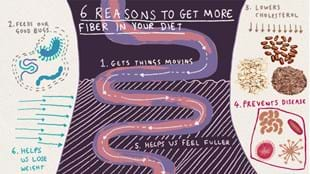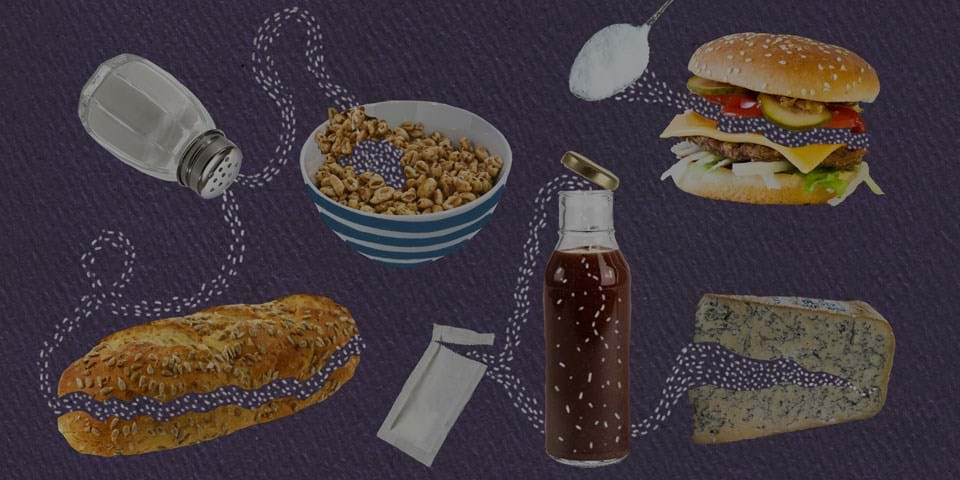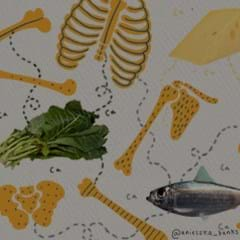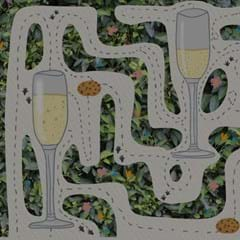Strange but true – one of the most important things we can eat is also something our bodies can’t actually digest. Fiber is the part of plant foods – fruits, vegetables, seeds, nuts, legumes, grains – that passes through us, imparting lots of benefits along the way.
You may be familiar with two types of fiber: soluble and insoluble. But in fact there are many sub-types of fiber too, including one – resistant starch – that’s getting more attention. Most plant foods contain different types of fiber bundled together in varying amounts. It’s important to get a wide variety of plant foods, so we get a good range of different types of fiber. (Giving up grains, for example – popular in some trendy diets – could have the unintended consequence of greatly reducing the types of fiber we consume.)
Here’s what fiber does for our health.
- It helps keep things moving
Fiber helps to keep food and waste products moving on through our digestive system. Soluble fiber acts like a sponge, absorbing liquid. This makes the contents of the bowel softer and easier to move through. Insoluble fiber helps to bulk up waste, too, and also helps push it through the system, like an internal brush. This – along with enough fluids in our diet – stops us getting constipated and feeling bloated and uncomfortable.
- It feeds our good bugs
Some types of fiber, such as oligosaccharides, help our population of gut bacteria – which affects many aspects of our health – by stimulating the growth of beneficial bacteria. Having a healthy population of gut bacteria can affect our immunity, our risk of developing diseases, and even our psychological health.
- It lowers cholesterol
You may have seen health claims about cholesterol on foods such as cereals. That’s because there’s evidence to show that the soluble fiber found in beans, oats, flaxseed and oat bran may help lower cholesterol levels, in particular by reducing the levels of LDL or “bad” cholesterol. Healthy cholesterol levels are an important part of good heart health.
- It prevents disease
Fiber also helps in the prevention of other diseases. Because high-fiber foods have a lower glycemic index (GI), they slow the release of glucose into the blood, which can help prevent and control diabetes. There’s evidence to suggest high-fiber diets also help lower the risk of developing bowel cancer.
- It helps us feel fuller
Because foods high in fiber are low-GI, they’re absorbed more slowly. That means we feel fuller and more satisfied for longer. Think of the difference between eating a big plate of crunchy salad and a fast-food burger; the first takes a fair amount of time to eat and fills you up; the second can be eaten in a few bites and is likely to leave you hungry a short time later.
- It helps us lose weight
That feeling of satiety – feeling full – is one reason high fiber intake can help us lose and control weight. Fiber slows the digestion of foods, slowing gastric emptying – basically it takes longer for us to feel hungry again. Fiber also ferments in the gut during digestion, producing short-chain fatty acids, and researchers think these may delay a hunger response. There are many studies to show associations between higher fiber and wholegrain diets with lower body weight and the prevention of weight gain. Recent studies have focused on the gut bacteria and links between this and lower weight.
How to get enough fiber
Having a good, plant-based, balanced diet including a wide variety of foods – basically what’s recommended for every other aspect of our health – is a pretty good way to get a great amount and range of fiber into our diets. That means: plenty of vegetables and fruit; wholegrain versions of bread, pasta, cereal and rice; nuts and seeds; and legumes (beans, chickpeas, lentils). Making these a big part of our everyday diet means we’re on our way to a healthy gut and a host of health benefits.

Niki Bezzant is a New Zealand-based food writer, editor and commentator. She is the founding editor (now editor-at-large) of Healthy Food Guide magazine, and is currently president of Food Writers New Zealand and a proud ambassador for the Garden to Table program which helps children learn how to grow, cook and share food. She is a member of the Council of Directors for the True Health Initiative, a global coalition of health professionals dedicated to sharing a science-based message of what we know for sure about lifestyle and health.
Illustration by Anieszka Banks.
If you want more health and fitness inspiration simply sign up to Fit Planet and get the freshest insights and advice straight to your inbox.








